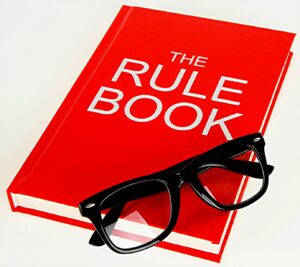Thierman Estate v Thurman 2013 BCSC 503, involved a testator who died in 2010 at the age of 92, leaving a copy of his 2006 will in a dresser or in his bedroom. A search for the original will that had been in his safety deposit box, and the rest of his home, turned up nothing. There was evidence indicating that the testator had received the original will in 2006 and placed it in his safety deposit box as he told his lawyer he would do. There was also evidence however that he accessed the safety deposit box shortly before his death. The court found that the testator did so in order to remove the will and to destroy it before his death, intending to revoke it. Accordingly the court ordered that sense the original will was missing, the deceased died intestate.The petitioner relies on the rebuttable presumption referred to in Haider v. Kalugin, 2008 BCSC 930 at paras. 9-11:
[9] If a Will last known to be in custody of testator is not found at his death, the presumption is that the testator destroyed it with the intention of revoking it (“animo revocandi”). However, that presumption may be rebutted by evidence, written or oral, of the facts. The strength of the presumption will depend upon the character of the custody which the testator had over the Will: Sugden v. Lord St. Leonards (1876), 1 P.D. 154 (English C.A.).
[10] In Sigurdson v. Sigurdson [1935] 2 D.L.R. 445 (S.C.C.), at paragraph 49, Davis J. said:
[49] It needs very clear and convincing evidence to establish what is alleged to be a lost will. … The person propounding such a will has a burden of proof that persists throughout the whole trial to satisfy the court at its conclusion that the will is in fact lost and was not destroyed by the testator with the intention of putting an end to it. Each case of course turns upon its own facts but the principles respecting the well-settled presumption against the Will must be applied to the facts.
[11] In Welch v. Phillips (1836) 1 Moo PC 299, at 302, referred to in Bobersky Estate (Re) [1954] A.J. No. 12 (Alta Dist. Crt.), at paragraph 6, the court said:
[6] If a will traced to the possession of the deceased, and last seen there, is not forthcoming on his death, it is presumed to have been destroyed by the deceased himself; and that presumption must have effect, unless there is good and sufficient reason to repel it. It is a presumption founded on good sense, for it is highly reasonable to suppose that an instrument of so much importance would be carefully preserved, by a person of ordinary caution, in some place of safety and would not be either lost or stolen, and if, on the death of a maker, is not found in his usual repositories or else where he resides, it is in a high degree of probable that the deceased himself has purposely destroyed it. But this presumption, like all others of fact, may be rebutted by others, which raises a higher degree of probability to the contrary.
[43] Although some cases, such as McBurnie v. Patriquin [1975] N.S.J. No. 447 (S.C.(A.D.)), refer to the “very heavy burden” upon the party attempting to rebut the presumption, I do not find such language helpful in explaining the standard of proof: see Pecore v. Pecore, 2007 SCC 17; and Jorsvick Estate, 2011 BCSC 528. The presumption recognizes that the burden of proof is on the party attempting to rely on a non-original copy of a will. Thus, the presumption of destruction of a will that had been in the testator’s possession but cannot be found on his death may be rebutted by evidence establishing on a balance of probabilities that the will was inadvertently lost or misplaced.
[44] At paras. 13-14 of Haider v. Kalugin, the Court enumerates some of the factors to be considered in deciding whether the presumption applies, and if so, whether it has been rebutted:
[13] Some of the factors considered in determining whether the presumption has been overcome are:
* whether the terms of the Will itself were reasonable: Pigeon Estate v. Major, [1930] S.C.R. 252 (S.C.C.);
* whether the testator continued to have good relationships with the beneficiaries in the copy of the Will up to the date of death: Pigeon, supra;
* where personal effects of the deceased were destroyed prior to the search for the Will being carried out: Pigeon, supra;
* the nature and character of the deceased in taking care of personal effects: Pigeon, supra;
* whether there were any dispositions of property that support or contradict the terms of the copy sought to be probated: MacBurnie v. Patriquin, supra; Anderson v. Kahan Estate, [2006] B.C.J. No. 716 (B.C.S.C.);
* statements made by the testator which confirm or contradict the terms of distribution set out in the will: Bobersky Estate, supra, Anderson, supra, Holst Estate v. Holst, [2001] B.C.J. No. 1560 (B.C.S.C.), Re Green Estate, [2001] A.J. No. 1253 (Alta Q.B.);
* whether the testator was of the character to store valuable papers, and whether the testator had a safe place to store the papers: Bobersky Estate, supra, Brimicombe v. Brimicombe Estate, [2000] N.S.J. No. 157 (N.S.C.A.);
* whether there is evidence that the testator understood the consequences of not having a Will, and the effects of intestacy: Bobersky Estate, supra;
* whether the testator made statements to the effect that he had a will: Bobersky Estate, supra.
[14] However, the presumption of revocation does not apply where the Will cannot be traced to the possession of the testator: Brimicombe v. Brimicombe Estate, supra, at paragraph 7.




